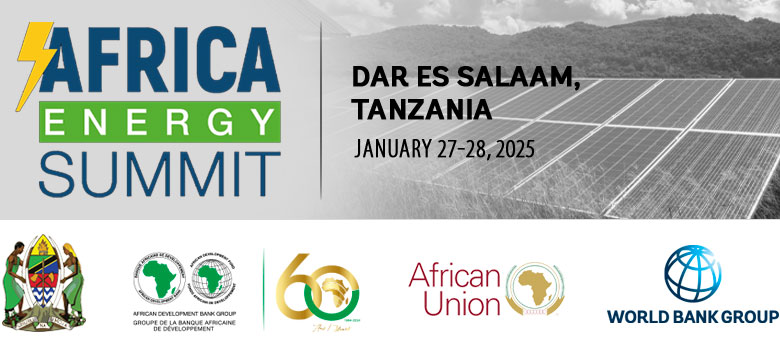Introduction
Tanzania’s recent hosting of the Mission 300 Africa Energy Summit on January 27-28 in Dar es Salaam marks a significant milestone in the country’s growing influence in the global energy transition. The event has culminated in the Dar es Salaam Declaration, a pivotal framework aimed at shaping Africa’s energy landscape to achieve a wonderful milestone of connecting 300 million Africans to electricity as we approach the year 2030. As a country endowed with vast natural resources, strategic geographic positioning and a commitment to sustainable development, Tanzania’s role as a host country underscores its potential to lead Africa’s energy future.
A Platform for Energy Transformation
The Energy Summit brought together innovators, policymakers, investors and stakeholders from 12 African countries to discuss Africa’s energy challenges and opportunities for positive transformation. With many African nations still grappling with energy poverty and insecurity, the summit served as a crucial platform for forging collaborative solutions, advancing renewable energy projects and securing much-needed investments in sustainable infrastructure.
Tanzania’s selection as the host nation is no coincidence but a planned endeavor from Tanzania’s energy sector development. The country has demonstrated a proactive stance on energy policies, particularly in the development of natural gas, hydropower and renewables. The summit has been a place to highlight Tanzania’s ambitions to enhance energy security through diverse sources termed clean energy taps. By providing a stage for discussions on clean and inclusive energy transitions, Tanzania reaffirms its commitment to bridging the energy gap while fostering economic growth as a genuine example of energy transformation in the continent.
The Dar es Salaam Declaration for Africa’s Energy Future
One of the summit’s key achievements was the Dar es Salaam Energy Declaration, a policy framework designed to guide African nations in accelerating energy access, securing financing for clean energy projects and promoting regional energy integration. The declaration emphasizes the importance of:
First, investing in renewable energy by encouraging African countries to shift towards solar, wind and hydropower to ensure long-term energy security and reduce carbon emissions. The summit policies will expand renewable energy capacity; Africa can reduce their greenhouse emissions by 30 to 35 percent by 20230 in the way to climate change mitigation.
Second, enhancing energy infrastructure by strengthening grid connectivity and cross-border energy trade to facilitate access to affordable electricity. Improved infrastructure will allow for a more efficient and reliable energy distribution network, ensuring that power reaches underserved regions. A robust energy infrastructure will also attract foreign investments and bolster industrial growth, fueling economic development across the continent.
Third, promoting partnerships between the government and private sector by creating an enabling environment for investors to fund large-scale energy projects, ensuring sustainable economic growth. The partnerships will help bridge financing gaps by leveraging private sector expertise and capital to implement large-scale renewable energy projects. Moreover, fostering collaboration between governments and private entities will enhance policy stability, ensuring long-term commitments to energy development through inclusion.
Fourth, ensuring energy equity by addressing disparities in energy access, particularly in rural and marginalized communities. Equitable energy access will empower vulnerable populations, improving health, education and economic opportunities in remote areas. Governments must implement policies that prioritize inclusive energy distribution, ensuring that no community is left behind in Africa’s energy transition under Mission 300.
Tanzania’s Growing Influence in the Energy Sector
Hosting the summit solidifies Tanzania’s role as a key player in Africa’s energy transition. The country’s vast natural gas reserves found in deep-sea waters in the Indian Ocean, coupled with investments in renewable energy projects such as the Julius Nyerere Hydropower Plant, position it as a strategic leader in regional energy security.
Furthermore, Tanzania’s geographical location makes it a crucial hub for energy distribution across East and Southern Africa. By strengthening intergovernmental energy cooperation, Tanzania can enhance its trade partnerships while ensuring stable and sustainable energy supplies for neighboring countries.
Last but not least, Tanzania and other attending countries and private companies considered the African Energy Summit as a monumental summit to discuss how, as leaders and stakeholders will be able to deliver the best to half of 600 million African citizens who are facing a shortage of power and clean cooking solutions and transform lives and economies in the fourth generation technologies.
Implications for Africa’s Energy Transition
The Dar es Salaam Energy Declaration represents more than just an agreement; it signals Africa’s collective ambition to drive energy transformation. As global pressure mounts to phase out fossil fuels and embrace sustainable alternatives, Africa must seize this moment to chart its own energy destiny. This declaration serves as a guiding principle for African nations to transition towards a more resilient and self-sufficient energy sector, reinforcing the continent’s commitment to environmental sustainability and economic prosperity.
Tanzania’s hosting of the Energy Summit serves as a call to action for other African nations to prioritize energy development, invest in renewables, and engage in strategic partnerships. With the right policies and commitments, Africa can move towards energy self-sufficiency while supporting global climate goals. By taking decisive steps in implementing the goals of the Dar es Salaam Declaration, African countries can ensure that energy development is both inclusive and sustainable, ultimately benefiting future generations.
Conclusion
Tanzania’s role as the host country of the Energy Summit and the champion of the Dar es Salaam Declaration highlights its dedication to shaping Africa’s energy future. As the continent grapples with energy challenges, Tanzania’s leadership in facilitating crucial dialogues and driving policy action is commendable. Moving forward, the successful implementation of the Dar es Salaam Declaration will be instrumental in ensuring a just and equitable energy transition for Africa, fostering sustainable growth, and improving the lives of millions.

